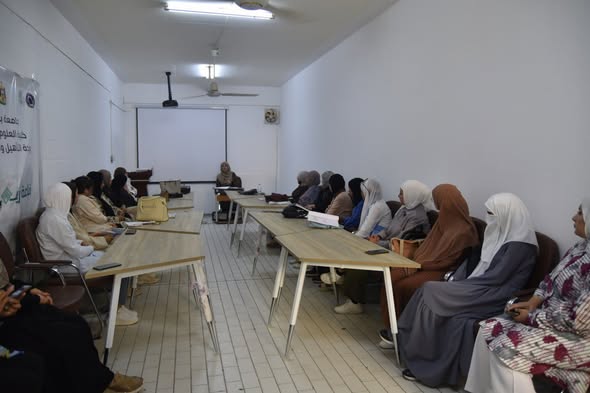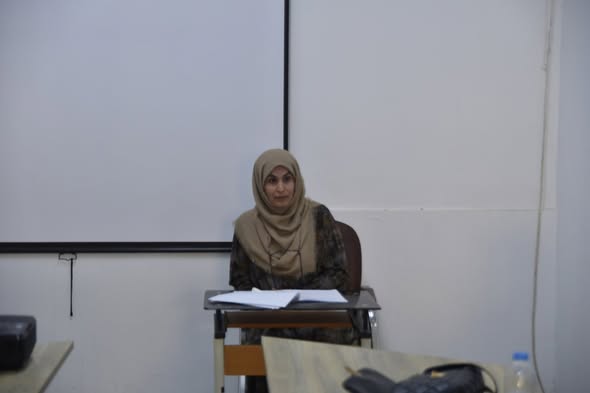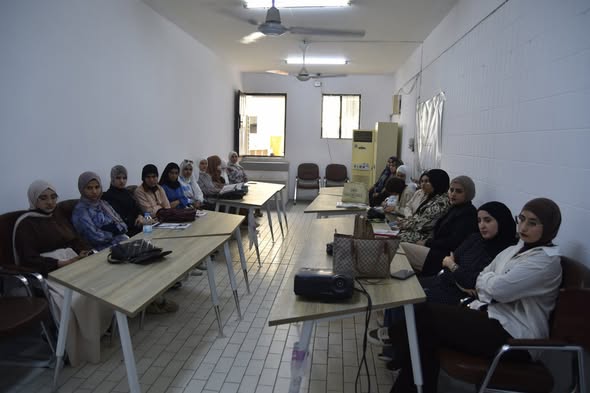Under the patronage of the Dean of the College of Science for Women, Professor Dr. Sameera Naji Khdim, the Rehabilitation and Employment Unit organized a workshop entitled “Peaceful Coexistence and Confronting Hate Speech.” The workshop was presented by Ms.Hanan Mohi Naif, with the participation of several staff members and college students, and was held in the Al-Riyada Hall of the Rehabilitation and Employment Unit.
At the beginning of the workshop, Ms. Hanan explained the concept of peaceful coexistence as a state of harmony in which a group of individuals with different social systems—religious, cultural, political, and economic—live together peacefully. She noted that the idea of coexistence emerged as a term in various historical periods, particularly as a reaction to conflict and destruction during the Cold War between the United States and the Soviet Union.
She further clarified that the concept of coexistence is not new in contemporary times, especially since Iraq is a country rich in ethnicities and sects. This diversity, she emphasized, is part of the essence of Islam, fostering a sense of solidarity and belonging. The land on which we live is deeply connected to our identities and cultures and represents the history of our ancestors. Therefore, diversity and pluralism enable individuals to accept one another despite differences, allowing everyone to live in peace and brotherhood. Diversity, she added, constitutes a source of cultural richness for society and forms an identity that reflects the historical stages witnessed by the land of Mesopotamia.
Ms. Hanan also highlighted that the Iraqi Constitution of 2005, in Article (3), affirms that Iraq is a country of various ethnicities, religions, and sects, and that all Iraqis are equal before the law without discrimination based on gender, ethnicity, or nationality.
She concluded by emphasizing that peaceful coexistence is founded on several key principles that must be understood and practiced to achieve it—most notably, the acknowledgment of differences, the rejection of exclusion or coercion of others, and the realization of the values of justice and cooperation.











